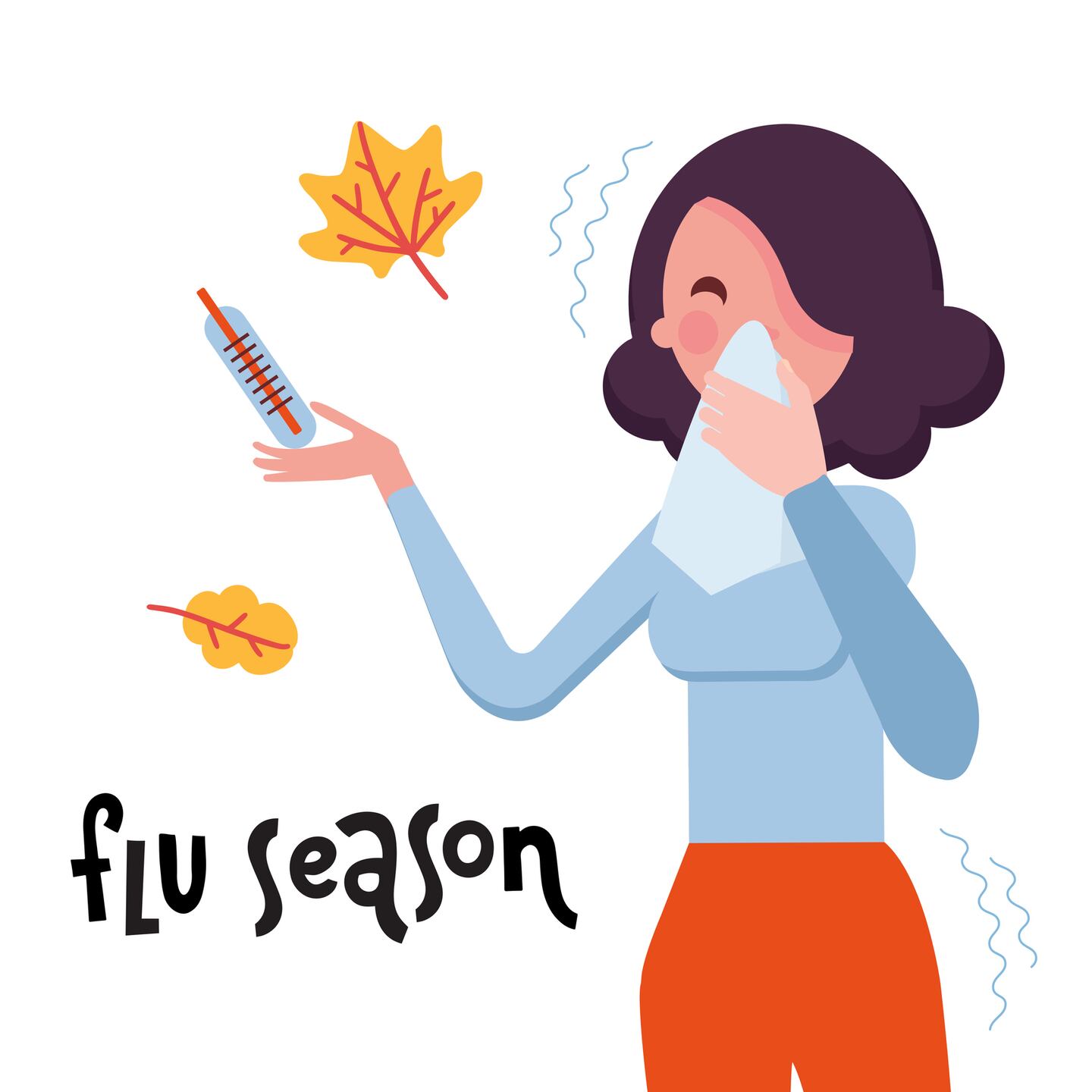How to Keep Healthy This Flu Season
The 2020-2021 flu season is underway and this year, it happens to be occurring alongside the global coronavirus pandemic. That means that this year, it’s more important than ever to take steps to protect yourself and the people you love from the flu virus.
Getting a flu vaccine is the best thing you can do to help yourself stay healthy during flu season. While the vaccine protects against many strains of influenza, it doesn’t protect against all of them. In addition to getting the flu shot, are other things you can do to reduce your risk of getting the flu and to keep yourself from spreading it to others.
Wash Your Hands
Clean hands save lives. Washing your hands helps to remove and kill the influenza virus, as well as other viruses and germs that can make you sick.
The Centers for Disease Control and Prevention (CDC) recommends washing your hands:
● Before you eat
● Before, during, and after food preparation
● After you sneeze or cough
● After using the restroom
● After handling a pet or other animal
● Before and after wound treatment
● Before and after caring for another person who’s ill
When you wash your hands, use soap and warm water and lather up for at least 20 seconds. Make sure you get all areas of your hands, including between your fingers and under your nails. Rinse your hands, then dry them with a clean towel.
Hand sanitizer can sub in for handwashing when you don’t have access to soap and water. Make sure to use a hand sanitizer with at least 60% alcohol for the greatest germ-killing effectiveness.
Read: The differences between the flu, COVID-19, colds and allergies
Reduce Contact With Others
People who have the flu can start to spread it to others one day before they have symptoms. Once symptoms appear, people are usually most contagious within the first three or four days and often remain contagious for up to seven days afterward2.
If you want to stay healthy this flu season, try to limit contact with others, particularly with people who are showing symptoms such as coughing and sneezing. Use the same social distancing measures you’re using to protect yourself from the coronavirus, such as staying at least six feet from people who don’t live with you and wearing a mask around others, to protect yourself from the flu.
Beat Stress
Keeping your body healthy overall is an effective way to help keep the flu and other infections away. One way to protect your body is to limit stress.
While that might sound easier said than done, there are things you can do to lower your stress levels and keep your immune system functioning at its best. There are multiple things you can try to help bring down your stress. Some people find that taking a few minutes to breathe deeply and focus on their breath helps to calm their mind. Others use meditation to calm their thoughts and ease stress.
It can also be a good idea to talk to someone, such as a licensed therapist or a psychologist if you find yourself under high amounts of stress. Your therapist can help you develop strategies to cope with the stressors in your life or can help you make a plan to reduce the amount of stress you experience.
Beating stress can also lead to an improved night’s sleep, which can also help you stay healthy during flu season.
Start or Keep Moving
Exercise and physical activity can help you feel better overall and might improve your chances of fighting off an infection. If you don’t already have an exercise routine, it can be worthwhile to talk to your family doctor and come up with a plan to start one. Even something simple, such as taking a mile walk or going for a 30-minute bike ride several times a week, can help improve your health.
Eat Immune System-Boosting Foods
Just as exercise might give your immune system a boost, so might eating certain types of foods and avoiding other types of foods. Some foods can increase inflammation in the body, which can make it harder for your immune system to do its job. Foods that are high in saturated and trans fats, for example, tend to increase inflammation.
Other foods, such as those that are high in omega-3 fatty acids, help to lower inflammation. If you aren’t already, try eating more salmon, walnuts, and pumpkin seeds to increase your intake of omega-3′s. Eating plenty of vegetables and fruits, which contain lots of vitamins that can help your immune system, is also a great way to keep yourself healthy during flu season.
Exercising, eating a nutritious diet, and washing your hands aren’t only things that you should do during flu season. They’re excellent habits to cultivate for good health all year round.
Sources:
- When and How to Wash Your Hands, CDC, https://www.cdc.gov/handwashing/when-how-handwashing.html
- How Flu Spreads, CDC, https://www.cdc.gov/flu/about/disease/spread.htm
- Exercise and Immunity, MedLine Plus, https://medlineplus.gov/ency/article/007165.htm
- What to Eat When You Have the Flu, Cleveland Clinic, https://health.clevelandclinic.org/what-to-eat-when-you-have-the-flu/
Cox Media Group








